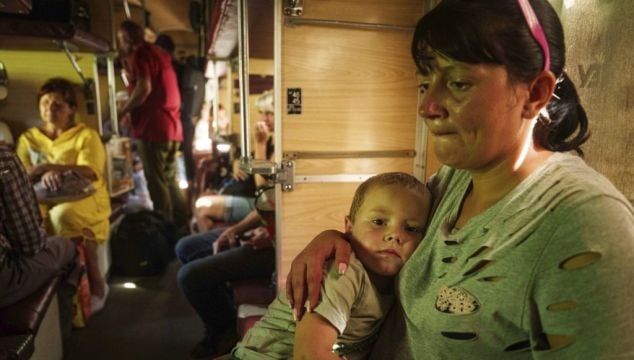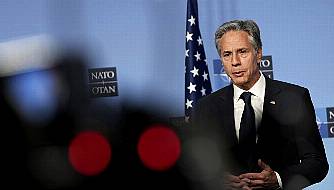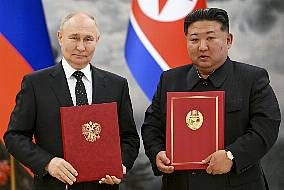Civilians with small children in their arms and lugging heavy suitcases fled from Ukraine’s eastern city of Pokrovsk on Monday, where the Russian army was bearing down fast despite a lightning Ukrainian incursion into Russia’s Kursk region.
Local authorities said Russian forces were advancing so quickly that families were under orders to leave the city and other nearby towns and villages from Tuesday.
Around 53,000 people still live in Pokrovsk, officials said, and some of them decided to get out immediately.
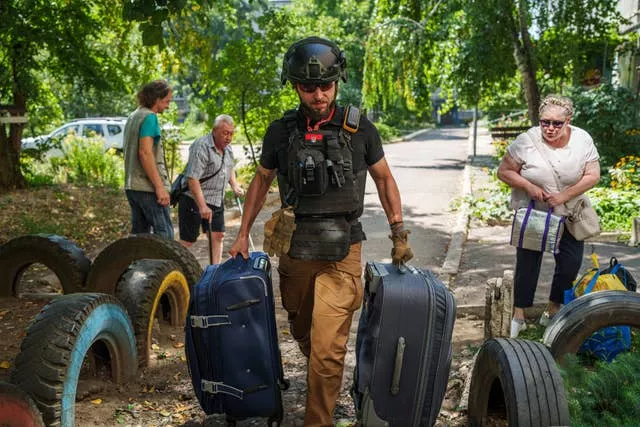
People of all ages boarded trains and buses with the belongings they could carry. Some wept as they waited to depart.
Soldiers helped the elderly with their bags, and volunteers helped people with disabilities. Rail workers wore bulletproof vests.
Natalya Ivaniuk said the noise of explosions from Russian bombardments filled the air while she and her daughters, age seven and nine, fled their home in the nearby village of Myrnohrad, which is less than 10 kilometres (six miles) from the front line.
“It was terrifyingly scary,” she told The Associated Press. “We barely got out.”
Pokrovsk is one of Ukraine’s main defensive strongholds and a key logistics hub in the Donetsk region.
Its capture would compromise Ukraine’s defensive abilities and supply routes, and would bring Russia closer to its stated aim of capturing the entire Donetsk region.

One of Kyiv’s attempts to ease the pressure on its eastern front was the unexpected August 6 incursion into Russia’s Kursk region, which among other goals aimed to unnerve the Kremlin and compel it to split its military resources.
Ukrainian president Volodymyr Zelenskiy said on Sunday that the daring incursion is trying to create a buffer zone that might prevent further attacks by Moscow across the border, especially with long-range artillery, missiles and glide bombs.
That operation was continuing on Monday under tight secrecy.
Russia’s relentless six-month slog across Ukraine’s Donetsk region following the capture of Avdiivka has cost it heavily in troops and armour.
However, the onslaught has gradually paid dividends as Ukrainian defenders have no choice but to pull back from positions blown to pieces by Russian artillery, missiles and bombs.
“There is a lot of destruction around us, so it becomes more and more scary to stay,” said Tetiana Myronenko, 57, who came from Selydove just five kilometers (three miles) from the front line.

She sat next to her husband in the car of a train waiting to leave Pokrovsk. It was bound for Lviv, hundreds of miles away in western Ukraine.
Russia wants control of all parts of Donetsk and neighbouring Luhansk, which together make up the Donbas industrial region.
Officials warned last week that Russian forces were rapidly advancing and were just 10 kilometres (six miles) from the outskirts of Pokrovsk.
Oleksandr Syrskyi, Ukraine’s Commander-in-Chief, said on Monday that “heavy battles” were taking place in the Pokrovsk area.
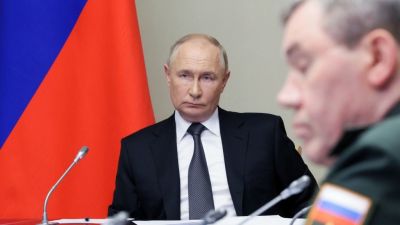
The nearby town of Toretsk, whose capture would open the door for a Russian advance on the key stronghold of Chasiv Yar from the south, is also under heavy pressure, he said.
Pokrovsk officials were meeting with residents to provide them with logistical details on the evacuation.
People were offered shelter in western Ukraine, where they will be hosted in dormitories and separate houses prepared for them.
